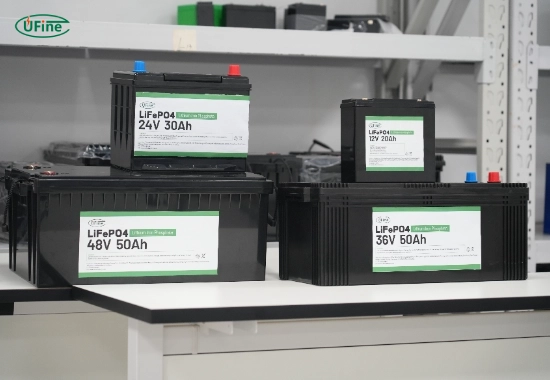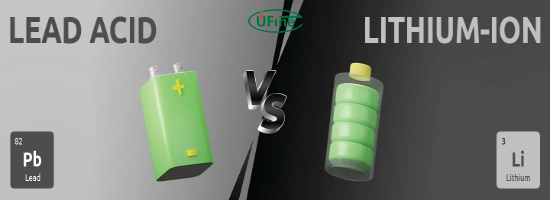
- Part 1. What is a lithium jet ski battery?
- Part 2. Why choose lithium over lead-acid for jet ski batteries?
- Part 3. How much do lithium jet ski batteries weigh?
- Part 4. How long do lithium jet ski batteries last?
- Part 5. Are lithium batteries safe for jet skis?
- Part 6. Can you use your standard charger for lithium batteries?
- Part 7. How do lithium batteries impact jet ski performance?
- Part 8. Best lithium battery brands for jet skis
- Part 9. How to maintain your lithium jet ski battery
- Part 10. Are lithium jet ski batteries eco-friendly?
- Part 11. FAQs about jet ski batteries
Looking for the best jet ski batteries to improve your personal watercraft’s power, reduce weight, and extend runtime? Lithium jet ski batteries quickly become the top choice for serious riders and recreational users. In this complete guide, we’ll explore everything you need to know about lithium batteries, from their internal chemistry to how they outperform traditional lead-acid batteries in every way.
Part 1. What is a lithium jet ski battery?
A lithium jet ski battery is a high-performance, rechargeable battery designed to power personal watercraft (PWC). Unlike traditional lead-acid batteries, lithium jet ski batteries use advanced lithium iron phosphate (LiFePO4) or lithium-ion chemistry, giving them superior energy density, longer lifespan, and much lower weight.
How it works
Lithium batteries store electrical energy by moving lithium ions between the anode and cathode through an electrolyte. This highly efficient chemical reaction produces low energy loss and consistent voltage output throughout the discharge cycle.
Why lithium is perfect for jet skis
Jet skis require quick bursts of high current, especially during ignition and acceleration. Lithium batteries deliver high discharge currents without voltage sag, allowing faster starts, more responsive throttles, and reliable engine performance.
Additionally, lithium batteries are sealed, non-spillable, and resistant to vibration, making them ideal for watercraft usage in wet, bumpy environments.
Part 2. Why choose lithium over lead-acid for jet ski batteries?
There are several reasons why more jet ski owners choose lithium batteries over traditional lead-acid models.
1. Weight reduction
Lithium batteries can be up to 70% lighter than lead-acid versions. A standard lead-acid battery might weigh around 15 lbs, while a lithium replacement weighs under 5 lbs. This weight difference can have a huge impact on:
- Acceleration
- Maneuverability
- Fuel efficiency (for models with hybrid fuel systems)
2. Longer lifespan
Lithium batteries can last 5 to 10 years, compared to just 2 to 3 years for lead-acid batteries. That means fewer replacements, less downtime, and better long-term value.
3. Faster charging
Most lithium batteries can be fully charged in under 2 hours, while lead-acid batteries may take 6–12 hours. This is a game-changer if you’re riding frequently or racing.
4. Consistent power
Lithium batteries maintain a steady voltage throughout the discharge cycle. This means your jet ski will perform at peak power until the battery is nearly empty, unlike lead-acid batteries, which gradually lose voltage as they discharge.
5. Maintenance-free
There is no need to top off water levels or deal with corrosion. Lithium batteries are completely sealed and require zero maintenance.
Part 3. How much do lithium jet ski batteries weigh?
Weight is a huge factor for performance. A lighter battery means better acceleration and easier handling.
- Typical lead-acid battery: 12–20 lbs (5.5–9 kg)
- Typical lithium battery: 2–6 lbs (0.9–2.7 kg)
A lighter battery reduces the overall center of gravity, which helps with cornering, stability, and fuel economy. For competitive riders, this can mean the difference between winning and losing.
Part 4. How long do lithium jet ski batteries last?
Lithium jet ski batteries are known for their exceptional longevity.
- Cycle life: 2,000–5,000 cycles
- Years of use: 5–10 years (depending on usage)
- Capacity retention: 80 %+ after 2,000 cycles
Lead-acid batteries usually degrade after 300–500 cycles and may only last 2–3 years under similar conditions.
Factors that affect lifespan:
- Water temperature (extreme cold or heat)
- Charging habits
- Storage conditions
- Battery management system (BMS) quality
Tip: Always choose lithium batteries with a built-in BMS. It automatically protects against overcharging, overheating, and deep discharges.
Part 5. Are lithium batteries safe for jet skis?
Modern lithium batteries are safe when built with the right technology.
Key safety features:
- Battery Management System (BMS): Controls temperature, current, and voltage
- Short-circuit protection
- Thermal cutoff and fuse protection
- Non-flammable chemistry (LiFePO4)
Necessary: Avoid cheap, unbranded lithium batteries lacking safety certifications. Always choose reputable brands with UL, CE, or UN38.3 certifications.
Part 6. Can you use your standard charger for lithium batteries?
Not always. Most lead-acid chargers are not optimized for lithium batteries.
Using the wrong charger can:
- Overcharge or undercharge the battery
- Damage the internal cells
- Void the warranty
Best practice:
Use a smart charger that’s designed explicitly for LiFePO4 or lithium-ion batteries. Some lithium batteries come with recommended chargers or even built-in charging ports.
Check that your charger supports:
- Constant Current/Constant Voltage (CC/CV) charging
- Float mode for lithium
- Automatic shut-off
Part 7. How do lithium batteries impact jet ski performance?
Lithium batteries can significantly enhance your jet ski’s overall performance.
Benefits include:
- Faster start-up (cold cranking amps are higher)
- More responsive throttle
- Stable voltage output during high loads
- Reduced weight for quicker turns and acceleration
- Less drain on the alternator and electrical systems
These benefits are particularly noticeable for racing, freestyle, or long-distance touring.
Part 8. Best lithium battery brands for jet skis
Choosing the right brand is essential for durability, performance, and support. Here are the top lithium battery brands trusted by jet ski riders:
1. Ufine Battery
Ufine Battery stands out for its custom-engineered lithium battery solutions. With a team of experienced engineers and technical consultants, Ufine offers:
- Customizable form factors to fit any jet ski model
- High-capacity cells with built-in BMS
- OEM and ODM support
- Excellent after-sales service
Whether you’re a hobbyist or a power sports OEM, Ufine provides tailored battery packs that combine high performance with safety and reliability.
2. Antigravity Batteries
Known for their ultralight designs and restart technology, Antigravity batteries are a favourite among racers. Their high discharge rates make them ideal for performance-focused riders.
3. Shorai
Shorai batteries are compact and lightweight, offering advanced lithium iron phosphate chemistry. Their batteries are easy to install and long-lasting.
4. EarthX
EarthX batteries are widely used in aviation and marine applications. They feature intelligent BMS, cell balancing, and thermal protection.
5. Battery Tender Lithium
An affordable option with good performance for recreational users. These batteries are drop-in replacements for most jet ski models.
6. NOCO NLP Series
Built for rugged use, NOCO lithium batteries are IP-rated for water resistance, offer fast recharge times, and have excellent safety features.
Part 9. How to maintain your lithium jet ski battery
While lithium batteries are low-maintenance, a few smart practices can maximize their lifespan:
Storage tips:
- Store at 50–70% charge during the off-season
- Keep in a cool, dry place
- Disconnect from the jet ski if not used for over 2 weeks
Usage tips:
- Avoid deep discharges (below 20%)
- Use a recommended lithium charger
- Do not expose to extreme heat or freezing temperatures
Pro tip: Use a battery monitor or voltmeter to track charge level and ensure optimal health.
Part 10. Are lithium jet ski batteries eco-friendly?
Yes, lithium batteries are more environmentally friendly than lead-acid batteries.
Here’s why:
- No hazardous lead or sulfuric acid
- Longer lifespan = fewer replacements
- Lower energy waste during charging
- Recyclable components
Many manufacturers now offer take-back or recycling programs for used lithium batteries.
Part 11. FAQs about jet ski batteries
Can I replace my jet ski battery with a lithium one?
Yes, absolutely. Ensure the lithium battery matches your OEM specs regarding voltage (usually 12V), terminal layout, and physical size.
Do lithium batteries need ventilation?
No. Lithium batteries are sealed and do not emit gases, unlike lead-acid batteries, so no special ventilation is required.
Can lithium batteries get wet?
Most lithium jet ski batteries are water-resistant, but not fully waterproof. Look for IP67 or higher ratings for better protection in wet environments.
How do I dispose of a lithium battery?
Please do not throw it in the trash. Take your battery to a certified recycling center or return it to the manufacturer if they offer a recycling program.
What happens if a lithium battery is overcharged?
A high-quality battery with a BMS will shut off before overcharging. However, a non-compatible charger can bypass these systems and damage the battery.
Related Tags:
More Articles

Can You Really Buy Cheap Batteries Safely?
Learn the truth about cheap batteries, hidden risks, and how to find affordable yet safe lithium batteries from Ufine Battery experts.
Do Lithium Batteries Require Special Strap Downs? (Safety + Vibration Control)
Discover why lithium batteries require special strap downs to prevent vibration damage, terminal stress, and internal component issues.
Battery Strap Down Safety Tips: Preventing Vibration Damage and Terminal Stress
Follow these expert battery strap down safety tips to prevent vibration damage, terminal stress, and ensure LiFePO4 battery longevity.
How to Choose a Good 18650 Battery with Reliable Quality?
Battery quality defines performance and safety. Ufine Battery shares how to source good 18650 batteries and avoid unstable suppliers.
Can I Use a Universal Battery Strap Down on LiFePO4 Batteries? (Compatibility Guide)
Learn whether universal battery strap downs are compatible with LiFePO4 batteries, and how to install them safely for vibration control.




